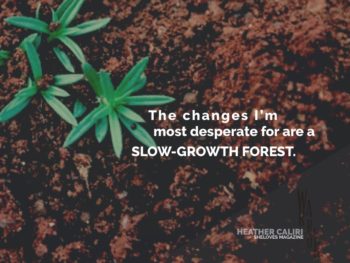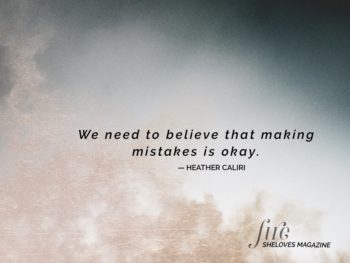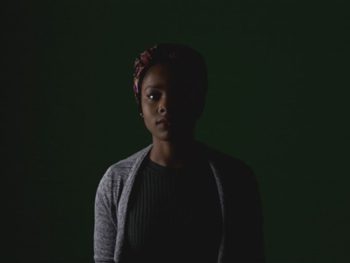I was lucky enough to stumble upon Osheta Moore’s blog right about the time she started blogging about finding her tribe. I especially loved this little gem on the diversity and unity in the body of Christ as discovered in an apple orchard. I wanted to talk to her about two big yeses in her life right now–the church plant she’s spearheading and the tribe she’s journeying toward. What a joyful, vibrant conversation we had!

Tell me about how your vision for starting a church—New City Boston–came through a road trip.
After my husband and I got married, we ended up in New Orleans doing urban ministry together. In 2005, I was eight months pregnant when Katrina came. We were evacuated to Texas, and ended up in Boston for seminary. We started our life over completely because we’d lost everything in New Orleans.
Five years and two more babies later, we still hadn’t been back to the city. So we decided to visit everyone we loved with an epic road trip: seventeen cities in twenty-one days.
Besides wanting to see everyone, we felt like we were at a critical stage in our life, towards the end of the degree program. We could sense change coming, and we wanted to pray with our mentors and ask, “What’s next?”
Every place we visited, we’d ask for prayer.
And everyone kept saying, “Have you thought about church planting?”
We hadn’t. We’d both been part of church plants and intentional communities that didn’t work out, and we didn’t think it was our thing.
But on those long legs of the trip, we had time to think, pray, and dream. We asked ourselves, “What would our dream church be?”
And the answer was: it would be multicultural, intergenerational. It would be the diverse church that Boston needs, in one of its most diverse neighborhoods, Lower Roxbury.
We call it New City Covenant Church.
To be truthful, though, it’s still super scary.
What feels scary to you?
As someone with young kids, I value the structure of a preexisting church. I value coming into it and finding my place.
In a church plant, in contrast, you’re forming this community yourself, and gathering the people. It’s uncomfortable. In each gathering, you have to ask yourself, “Okay, what are my kids going to do? How can I make this meaningful to them?”
Also, I wonder, “Are people going to show up?”
We know God has given us this vision. We know the community needs this. But we have to trust him with it. But I still keep asking, “Is this really going to happen?”
You just finished up a series about ‘finding your tribe.’ It was about trying to find meaningful community that supported you. How did planning the church fit into that series?
With the church plant, I was pouring myself into new people, but feeling increasingly isolated. I wanted have the time to be in two bible studies with old friends, and have built-in connections with friends throughout the week. But I needed to work on the church plant instead.
I had to find a tribe that would fit in with my new reality.
I felt a bit like Elijah, saying, “Lord! No one loves me!”
But the truth was, I already had girlfriends that is like-minded. I have a very vibrant tribe that I wasn’t being intentional with. I wanted to be able to walk into a pre-formed group—a Beth Moore study, or something.
But instead, I need to call people, and say, “Let’s get coffee this week.” I realized I had a very stuck idea of what I wanted.
In the end, the more I wrote about who I am, the more people resonated with it. They came out of the woodwork.
I realized I DO have a tribe.
If you were to describe how you took little steps toward community, what would you say?
The first thing I did is figuring out what gives me life: what conversations I want to have.
Then, I started looking for people that have those same interests.
I had to start letting go of the fear that people wouldn’t identify with me. I had to learn to be honest about what I’m processing. That means sharing what I’m going through.
I especially did that with a friend on our launch team. I emailed her ahead of time and told her what I was going to write. When I was able to examine my heart and be vulnerable, she was able to process it with me.
Of course, I only did that with people I truly trust. They, in turn, were able to reflect back and confirm that I wasn’t crazy.
It’s funny, because that vulnerability in being bold about what I wrote really opened doors. I wrote down a lot of raw things about race last month. A pastor’s wife I’ve known for a long time told me she really loved what I’d been writing, and it opened up the chance for her to mentor me. I’m terrified of being a pastor’s wife, and that is a big provision.
As a woman of color, are there special challenges to finding your tribe?
(Long pause). Yeah.
I have never really thought about race in my relationships before this series.
I was always the token black friend. I have always done predominantly white things; I went to a predominantly white high school. I was never really surrounded by a lot of women of color in high school.
It was always the elephant in the room; we were always ignoring it. I told myself the elephant didn’t really take up that much room. I wanted to be above race.
I married my husband, who is white. I didn’t want to think about it.
When we started doing urban ministry and I started trying to connect with women of color in the inner city, who have such different backgrounds, I realized that I had not been acknowledging that I am a woman of color. That I was being delusional about who I am.
I have been coming to terms with that identity.
Anyway, all that affects my tribe because I had never shared these feelings with anyone. It was a part of me that I didn’t open up about, because I didn’t want to be awkward.
But inside, I asked myself: “Do they love me for me? Or does my blackness make them feel better about themselves? Am I their “one black friend’ that they use to justify themselves?”
I certainly can’t speak for all black women, but that’s been my experience.
So I am hosting a movie night at my house next month, specifically to talk about these issues. We’re going to watch the documentary “Dark Girls” and use it as a way to open up a positive conversation about race.
I’m tired of asking myself these questions and not having them out on the table. And especially if we’re going to be a church plant: we have to be able to tackle hard subjects.
Seriously, this invite was scary for me. I sent out the email, and then went right in the bathroom and threw up.
Here’s what I’m learning, though. If people are interested in reconciling, they want to come. Those that aren’t, sort of self-select themselves out of it.
And those that show up will know me a lot better.
Longing for a faith full of joy, bravery and freedom? Become an email subscriber and get my free ebook about post-perfectionist faith.
Image credit: Alexandre Dulaunoy















This is a great interview! I recently started reading Osheta’s blog as well and have really appreciated her posts on race. I love hearing this store of how she’s been journeying in both her church and her community. 🙂
Isn’t she so insightful? I am excited to see how the church plant goes–I only wish I were closer to Boston so I could take part 🙂